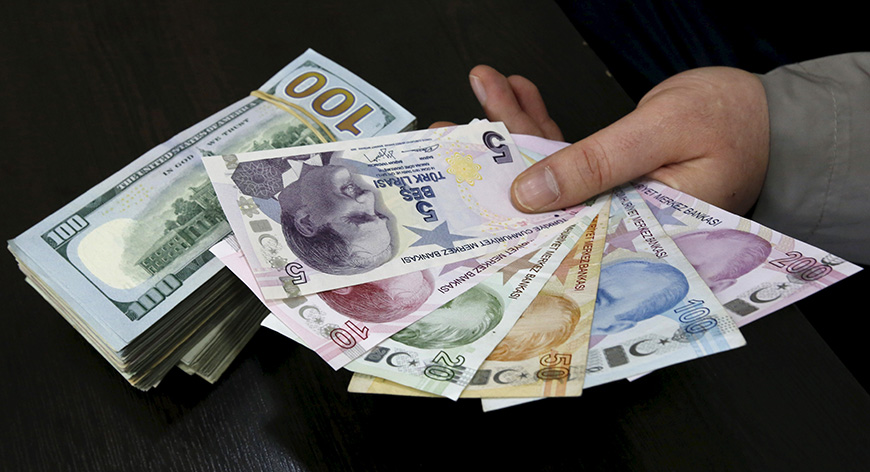- Economy Gains as CBN Reforms Lift Exchange Rate
The global economy has been in turmoil since the emergence of Donald Trump as United States (US) President. While the American dollar continues to appreciate, other countries’ currencies have been nose diving. Besides, the trade tensions between the US and China are beginning to take a toll on global trade.
For instance, interest rate hike in the US, funds flow reversals away from emerging and frontier markets, appreciation in the value of the United States dollar relative to other emerging markets’ currencies have triggered over 20 per cent loss in value of four emerging market currencies from January to September. This crisis has aggravated high current account deficit in some of the emerging market countries, translating to rising dollar debt and fiscal deficit as a proportion of their Gross Domestic Product (GDP).
Interestingly, Nigeria seems relatively insulated from the crisis in emerging markets given the level of reforms introduced by the Governor of the Central Bank of Nigeria (CBN), Godwin Emefiele.
Some of these policies include the restrictions of 41 items from accessing forex from the CBN foreign exchange (forex) window, the introduction of Investors and Exporters forex window, sale of forex to Bureaux De Change (BDCs), the Anchor Borrowers programme, as well as forex intervention at the interbank forex market to sustain dollar supply at the retail end of the market.
The Anchor Borrowers’ Programme, together with other initiatives like the Commercial Agriculture Credit Scheme and other packages for Small and Medium Enterprises (SMEs), are holding on significantly in the drive to boost the economy and shield it from perceived volatilities in the international economy that is dragging back most emerging markets.
The bank has committed over N23 billion to the Anchor Borrowers’ Programme, with active participation across 14 states of the Federation. In Kebbi State, over 78,000 smallholders are now cultivating about 100,000 hectares of rice farms. It is worthy of note that before the policy intervention of the CBN, Nigeria was consuming about 6.1 million tonnes annually, most of it imported and was producing less than 2.5 million metric tonnes. This has been significantly reversed just as the apex bank remains committed to do more with some identified crops such as rice, maize, sorghum, tomatoes, cassava, cocoa, cotton, dairy and groundnut. One of the reasons the CBN ventured into development banking was to minimise the effects of high interest rates on customers.
The bank has intervened through various developmental programmes, all at single digit interest rates, disbursing N393 billion in 490 projects under the Commercial Agriculture Credit Scheme, N79.8 billion under the Micro, Small and Medium Enterprises (MSME) Scheme, and N236.4 billion under the Power and Aviation Intervention Fund with 6.7 million direct jobs and a lot more indirect jobs. These policy decisions, analysts said have kept the naira stable at both the official and parallel market. The naira at the weekend strengthened at N358 to dollar at the parallel market and has remained at N360 to dollar at the official market.
I&E Forex Window
The coming of Investors’ and Exporters’ (I&E) Forex window and continued dollar/Yuan interventions have ensured that forex demand at the retail end of the market are met.In the first two weeks of introducing I&E Foreign Exchange Window, forex speculators lost over N500 million, as the CBN sustained its dollar interventions in the interbank market. The losses grew to over N1 billion in the first two months after more foreigners began to use the window, and its impact on the forex market deepened.
The economy has also enjoyed major inflow of forex in recent months with over $51 billion recorded in the I&E FX Window. The I&E Forex window, also called willing-buyer willing-seller window, allows foreign investors to find buyers for their dollars at a mutually-agreed price. The CBN controls about 15 per cent of all the transactions carried out in the window.As it stands now, many forex users will have no problem accessing forex for his holidays trips given the level of stability and liquidity existing in the foreign exchange market.
The CBN recently injected $340 million into the interbank retail Secondary Market Intervention Sales (SMIS). This is in addition to the sale of 69 million Chinese Yuan (CNY) in the spot and short tenored forwards.
According to its Acting Director, Corporate Communications, Isaac Okorafor, the sales in the Chinese Yuan were through a combination of spot and 15-day tenors. He said the exercise, in line with its guidelines, were for the payment of Renminbi denominated Letters of Credit for agriculture as well as raw materials and machinery.
Okorafor also explained that the requests attended to were bids received from authorised dealers, adding that Renminbi’s availability was sure to ease pressure on the Nigerian foreign exchange market.
Afrinvest West Africa Limited Managing Director Ike Chioke said the jump in foreign inflows was not a surprise given the development in the forex market, particularly the launch of the I&E forex window in April.”The knock-on effects of strong portfolio flows are already evident in performance of the domestic equities market which has historically been driven by foreign portfolio investors,” he said. Chioke said a strong positive correlation exists between the exchange rate and crude oil price in the country.


 Naira4 weeks ago
Naira4 weeks ago
 Naira4 weeks ago
Naira4 weeks ago
 Travel4 weeks ago
Travel4 weeks ago
 Naira3 weeks ago
Naira3 weeks ago
 Jobs4 weeks ago
Jobs4 weeks ago
 Naira4 weeks ago
Naira4 weeks ago
 Investment4 weeks ago
Investment4 weeks ago
 Travel4 weeks ago
Travel4 weeks ago























